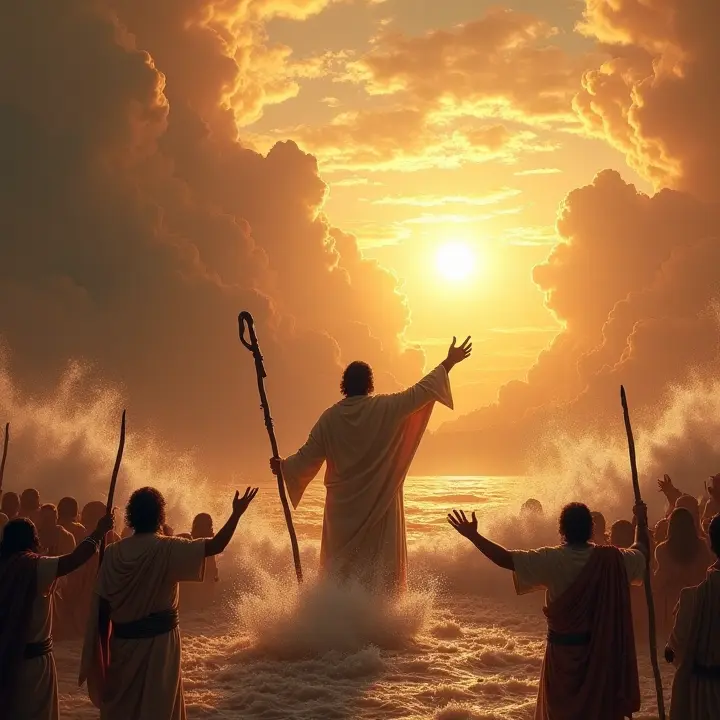In the land of Egypt, the Israelites were enslaved, their cries rising like a lament to the heavens. God heard their suffering and chose Moses, a man raised in Pharaoh’s household yet burdened by the plight of his people. Moses, after fleeing Egypt years before, was tending sheep near Mount Horeb when he saw a bush ablaze yet not consumed. There, God spoke to him, commanding him to return to Egypt and lead his people to freedom.
Moses, though reluctant, obeyed. He returned with his brother Aaron, armed with a staff that turned into a serpent as a sign of divine power. They went before Pharaoh, demanding the release of the Israelites. But Pharaoh’s heart was hardened, and he refused. God then unleashed a series of plagues upon Egypt, each more devastating than the last.
First came the plague of blood, turning the Nile, the lifeblood of Egypt, into a river of crimson. The fish died, and the stench was unbearable. Then came the plague of frogs, their croaking filling the land, their presence inescapable. Next, gnats swarmed, biting and tormenting the Egyptians. The fourth plague was of flies, swarming in the houses of the Egyptians but sparing the Israelites in Goshen.
The fifth plague struck the livestock, leaving the fields empty and the farmers desolate. The sixth plague brought boils upon the Egyptians, painful sores that afflicted both man and beast. The seventh plague was a fierce hailstorm, shattering crops and killing livestock in the fields. The eighth plague was of locusts, a living darkness that devoured every green thing left in the land.
The ninth plague was darkness, a thick and oppressive gloom that lasted for three days, a darkness that could be felt. But the final plague was the most terrible of all: the death of the firstborn. On that fateful night, the angel of death passed over Egypt, taking the life of every firstborn son. Only the Israelites, who had marked their doorposts with the blood of a lamb, were spared.
Pharaoh, broken by the loss of his own son, finally relented. He ordered the Israelites to leave Egypt. Moses led his people out, a great multitude, their hearts filled with hope and fear. As they fled, Pharaoh’s heart hardened once more, and he sent his army to pursue them. But God parted the Red Sea, allowing the Israelites to cross on dry land. When Pharaoh’s army followed, the waters closed over them, swallowing them whole.
Thus, the Israelites were freed from Egypt, their journey to the Promised Land just beginning. Moses, the reluctant leader, had become the instrument of God’s deliverance. And the story of the Exodus, with its plagues and miracles, became a testament to the power of faith and the enduring promise of freedom.

